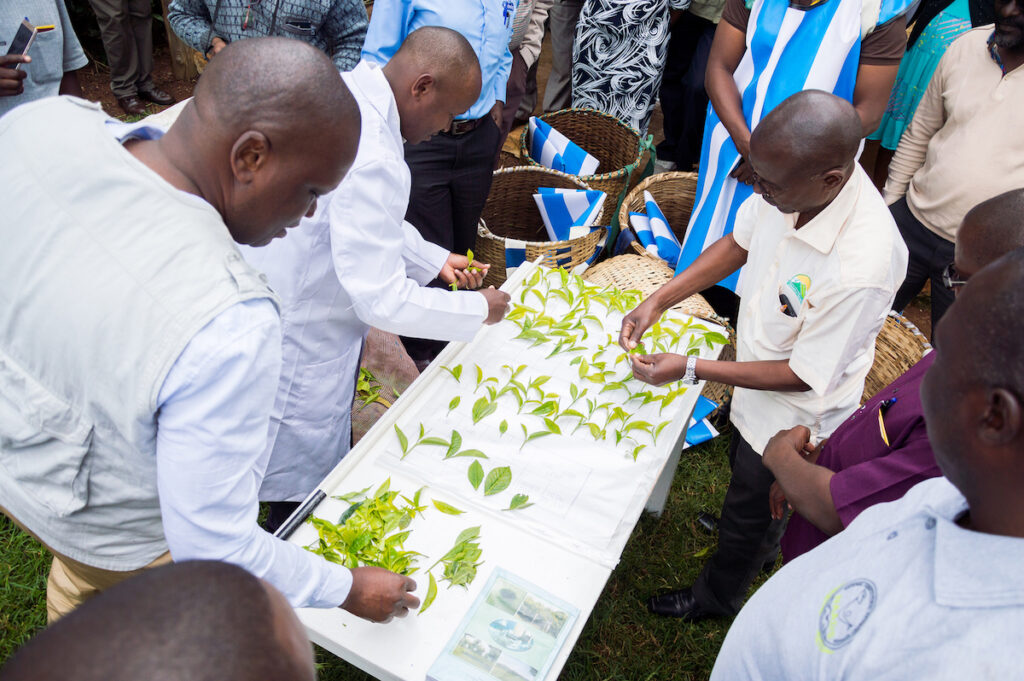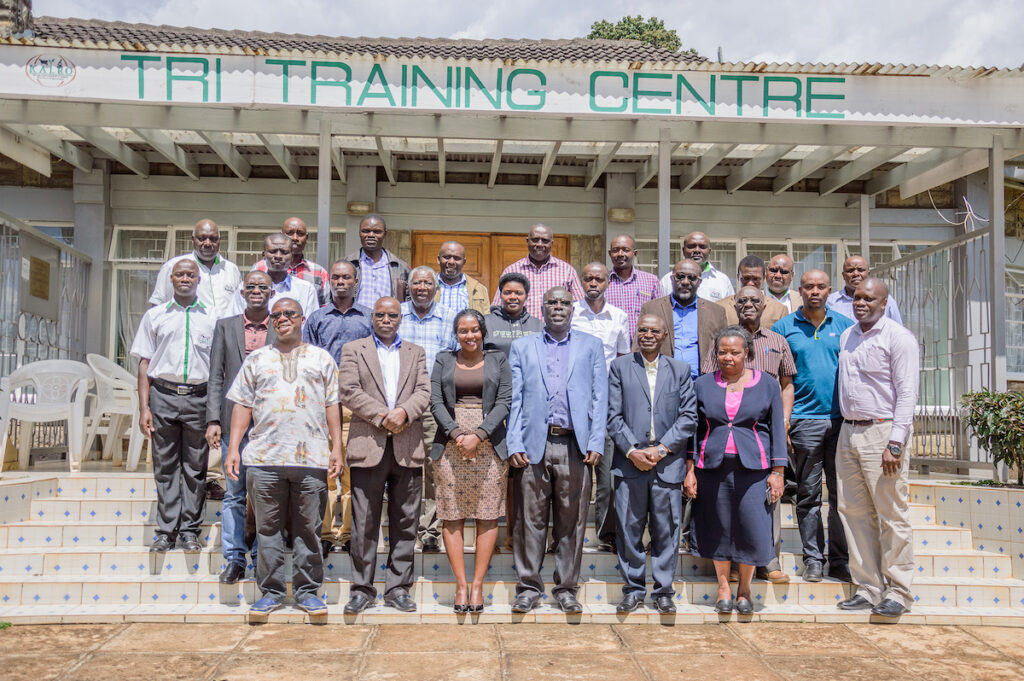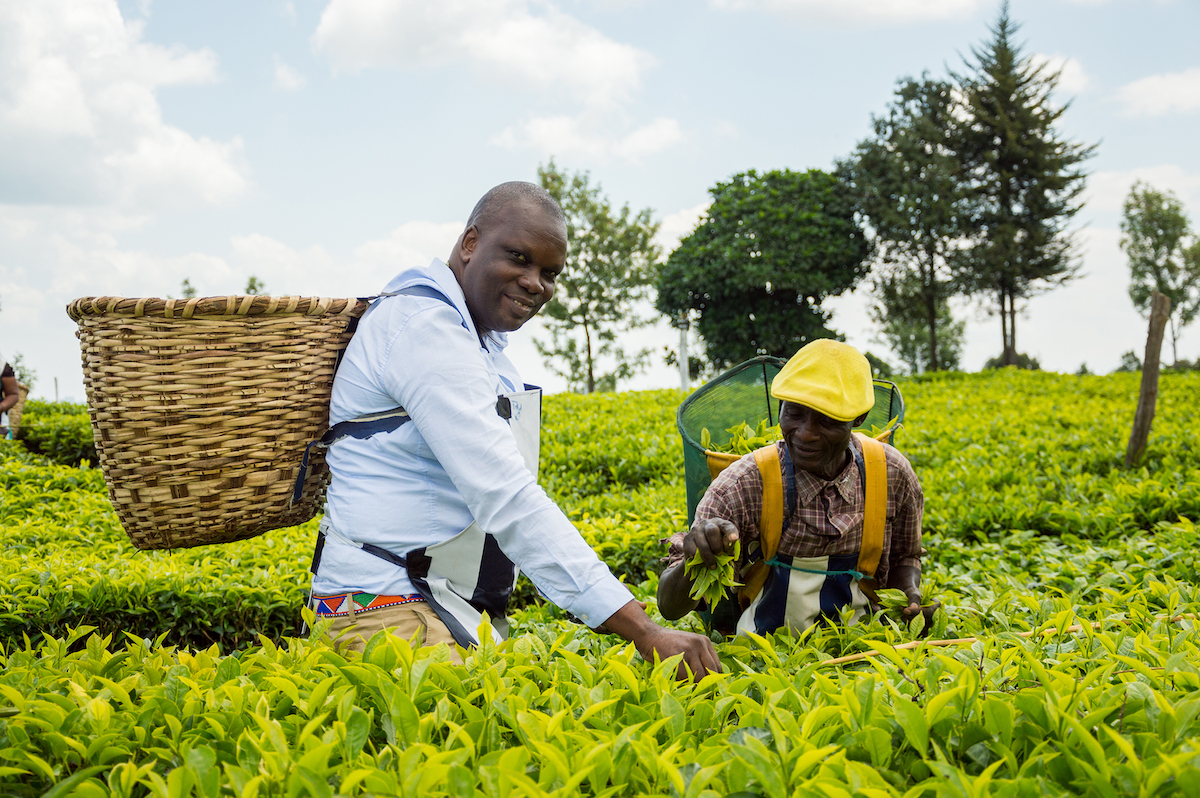By Alex Amanya, Senior Programme Manager, Solidaridad East & Central Africa
Since the introduction of tea to East Africa in the 20th century, it has continued to be an important cash crop in the region. The crop contributes about $1.4 billion (2%) and $85 million (0.36%) to Kenya’s and Uganda’s Gross Domestic Product (GDP), respectively (AFA & EPRC-UG). Tea provides a livelihood for over 4 million people in the two countries. More than 600,000 and 80,000 smallholder farmers are involved in tea production, and account for 60% and 46% of the tea production in Kenya and Uganda, respectively.
Tea Production in Kenya and Uganda
Source: Statista
Production increased from 399.3 million kilograms and 58.5 million kilograms in 2015 to 537.8 million kilograms and 65 million kilograms in 2021 for Kenya and Uganda respectively.
In spite of its import and growth potential in the region, the tea sector grapples with a myriad of challenges, chief among them:
- Perennial low productivity due to increased costs of farm inputs (such as fertilizers), poor agricultural practices, weak and underfunded extension services, low-yielding tea varieties, declining soil health/quality, and aging tea bushes among others.
- Rising costs of production due to inflation and the increased costs for energy, inputs, labor, technologies/infrastructure, financing and transportation.
- Unfavorable weather conditions, including prolonged droughts and El Niño rains due to climate change. Ideal conditions for tea are temperatures ranging between 10 to 30 degrees celsius, a minimum annual precipitation of 1250 millimeters and acidic soils (Prof. Ndege, 2021).
- Declining global demand for black tea especially in traditional drinking markets in Europe, North America and the Russian Federation due to increasing competition from other beverages, particularly bottled water and carbonated drinks. Between 2011 and 2021, tea consumption per capita declined by 1.4% in Europe, 2.3% in North America and 3.5% in the Russian Federation (FAO/CCP).
- Perennially low domestic consumption of tea per capita in Kenya and Uganda at 0.6 kg and 0.4 kg/person respectively compared to the world’s average of 1 kg/person (FAO).
- Low prices and limited profitability due to declining demand and low productivity. These, coupled with the high cost of production and poor agricultural practices make it difficult for smallholder farmers to produce quality teas that can fetch competitive prices in the global markets.
- Poor working conditions and disproportionately low wages for workers leading to destructive strikes, and incomes for farmers, which further exacerbate farmers’ vulnerability to risks such as climate change given their capacity to adapt and poverty.

The current challenges are exacerbated by the ‘closed nature’ of the sector, and include limited access to information on tea prices, exclusion of smallholder farmers, workers, women and youth in key decision-making processes sometime leading to destructive strikes and undue political interference, and poor coordination among tea sector actors and interest groups such as lobby and advocacy groups and media. A number of smallholder tea actors in Kenya describe the sector as “open to ‘buddies’ and closed to ‘the rest’”. All of these challenges are compounded by the prevailing bottlenecks in policy implementation as exemplified by the lack of tea sector policies in both Kenya and Uganda, as well as the ongoing court cases against the Kenya Tea Act, 2020 and Tea (levy) Regulations, 2021.
To effectively address the sector challenges, tea stakeholders need to embrace an inclusive approach that ensures representation, reinforces synergy and considers the ‘voice’ of all sector players’ especially smallholder farmers, and workers. Failure to do so will continue to hamper the sector’s growth, and jeopardize the livelihoods of an estimated 680,000 smallholder farmers in East Africa. In addition, lack of inclusive responses will impede the sectors’ ambitions and efforts towards attaining gender equality, sustainable development, decent work and economic growth and combating climate change.
There are opportunities for addressing the existing challenges, and catalyzing sustainable development in the sector. To fully exploit these opportunities, stakeholders including the government, development partners, CSOs and tea actors (farmers, workers, plantations and factories, exporters and tea brands) must rally together to foster coordinated and coherent policies and programmes.

Importantly, tea sector players have the opportunity to collectively lobby and advocate for implementation of enabling policies. Governments and the private sector have the opportunity to allocate resources and invest in the sector in both countries (EPCG) to ensure full implementation of the policies and regulations, fund research on new technologies, including new tea varieties, extension services, and provision of farming quality inputs among other services.
Inclusive dialogues are also needed to foster synergy and collaboration in the development and adoption of solutions to the sector’s main challenges. Doing so will bolster adoption and scale up of sustainable practices focused on natural resource management, such as renewable energy, inclusivity and digital solutions. Importantly, inclusive dialogues will foster a coordinated approach that ensures fair prices, wages and incomes, gender and youth inclusivity and access to productive resources and services among others are prioritized to transform the sector into a sustainable one.
Working Together to RECLAIM Sustainability! in the Tea Sector
RECLAIM Sustainability! is a five-year programme (2021-2025) funded by the Ministry of Foreign affairs of the Kingdom of Netherlands (MoFA). The programme is implemented by Solidaridad Eastern & Central Africa in partnership with Trust Africa, and East African Tea Trade Association. Through this programme, Solidaridad is promoting sector-driven solutions to contribute to a responsible and inclusive global tea sector that ensures value is distributed fairly, smallholder tea farmers and workers benefit from decent working conditions and tea is produced with respect to the environment.
The RECLAIM Sustainability! programme is implementing targeted interventions aimed at strengthening inclusive sector-wide collaboration and dialogue. The programme facilitates the establishment of multi-stakeholder platforms to promote inclusive dialogue and action, build the capacity of workers unions and small tea farmer associations, women and youth groups to participate in multi-stakeholder dialogues, and amplify the voices of all actors.
The programme is also collaborating with Kenya Environmental and Science Journalists Association and Water and Environment Media Network-Uganda to create awareness and call for action on the policy, legislation, market and environmental issues affecting the sector. Overall, the programme envisages to create a supportive public sector that is able to foster an enabling policy environment, a responsible private sector that supports sustainable production and consumption, and a strengthened civil society that enhances the civic space in the tea sector in East Africa.

